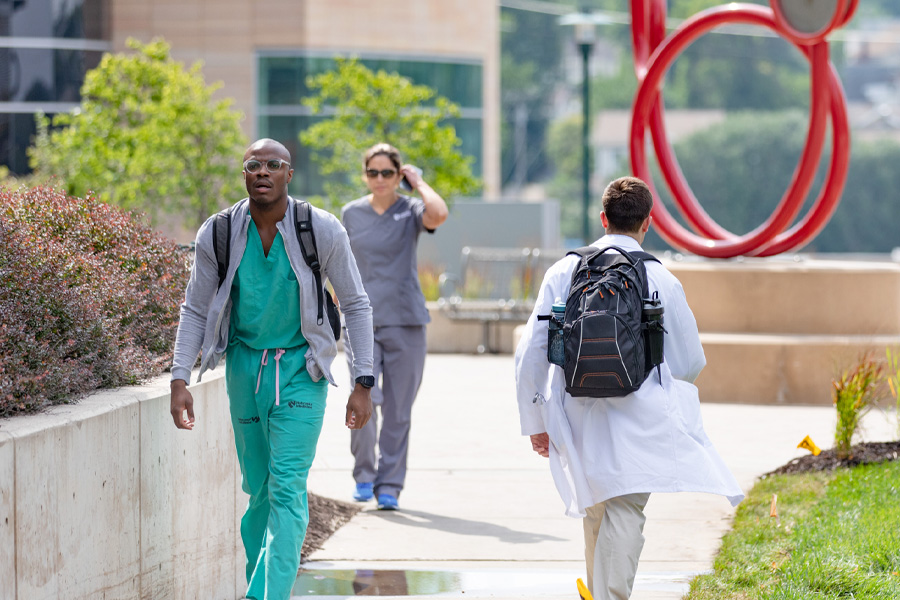MS or PhD in Health Practice & Medical Education Research

The MSIA Health Practice and Medical Education Research sub-plan supports two growing areas of scholarly interest.
- The first area of interest focuses on Emergency Preparedness, which is a growing career field involving emergency management/preparedness accreditation requirements within the healthcare and public health sectors.
- The second area of interest is the growing trend toward innovative approaches to health professions education, especially in the e-learning and simulation technology spheres.
Available opportunities to explore the simulation learning field have increased exponentially with opening of the UNMC Davis Global Center, a highly advanced clinical simulation facility purposefully designed to foster the practice of patient care in highly functioning and effective interprofessional teams. This approach allows students to learn through immersive and interactive simulation experiences. Other scholarly areas included in this sub-plan include, but are not limited to, Higher Education Systems Research and Healthcare Quality & Process Research.
All scholarly areas noted above are in need of evidence-based research to eventually guide practice and we are excited to follow the next generation of researchers as they advance these fields.
Advisory Committee
Dr. Sharon Medcalf (Program Director), Dr. Elli Rogan, Dr. Jenenne Geske, Dr. Beth Beam, Dr. Michelle Howell
Curriculum
The Health Practice and Medical Education Research sub-plan was created to support several growing scholarly areas of interest in the MSIA. The following are examples of emerging research interest areas:
- Health Education Research
- Higher Education System Level Research
- Emergency Preparedness Research
- Healthcare Quality and Process Research
These scholarly areas are in need of evidence-based research to eventually guide practice and this MSIA subplan supports the next generation of researchers in these and related areas as they advance their fields.
General Requirements
- Completion of at least 30 semester credits beyond the bachelor's degree, including both lecture coursework and research credits
- Completion of coursework
- Completion of the comprehensive examination
- Completion of a research project consistent with a master's level achievement
- Completion and successful defense of a master's thesis (Thesis Option)
Students must complete the majority of their coursework (all courses but one, excluding Seminar and Doctoral Dissertation) from their approved Program of Study prior to taking the Comprehensive Exam.